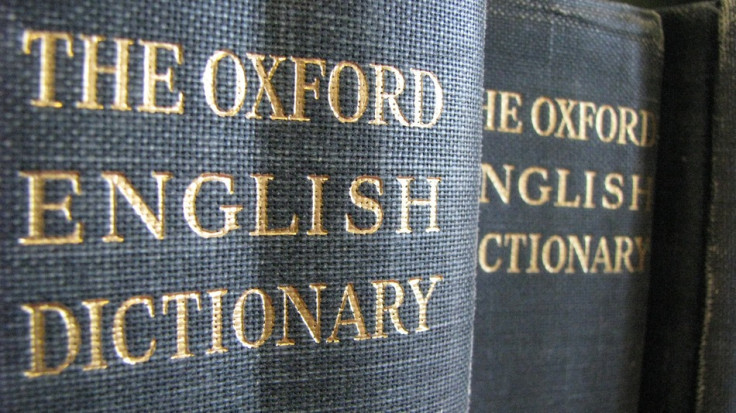'Moist', 'Brexit' and 'No': People asked to vote for most hated word in English language
The project by Oxford Dictionaries saw 'moist' also appear in Netherlands, Australia, Canada and USA's lists.

"Moist," "Brexit," and "No" have become early contenders for the most hated word in the English language after Oxford Dictionaries launched a worldwide search on Thursday (25 August).
More than 10,000 people have already submitted their least favourite words on the #OneWordMap website in what is hoped will be the largest global survey on which parts of the English language make people's blood boil.
The submissions will eventually be used by researchers to compile a list of of the least popular words by country, age, and gender.
And the results have already shown some surprising similarities, and differences, between nations.
After about 12 hours of the project being launched, the UK's five most hated words were "moist," "Brexit," "no," "British" and "like" – the last having gained popularity following the rise of Facebook.
"Moist" also features in the top five submissions from the Netherlands, Australia, Canada and the United States, echoing findings of previous studies which found the word widely disliked.
In India and Germany, both "love" and "hate" appeared to have fallen out of favour, while the most common greeting in the English language of "Hello" strangely topped the list in Spain.
For Australians, "panties" and "inflammable" were the common pet peeves, while in the English-speaking country of Nigeria just one person had voted – submitting the surname of its president, "Buhari".
"We expect to see a lot of words related to various political topics and issues," Oxford University Press's Daniel Braddock told IBTimes UK. "And probably some words related to disease and famine. The submitted answers will stem from such a wide range of reasons, so anything could happen.
"The map displays the top five submitted words in any country, but there are obviously many more words being submitted. We're likely to offer the data out to people for interpretation. We haven't set and end date yet. Because this is such a new thing for us, we're just going to see how it goes. Depending on how successful it is, we might launch it again, but with a different question."
The hatred of certain words – or "word aversion" – has been the subject of numerous studies over the years, with the "moist" phenomenon regularly explored.
A study published in the journal PLOS One earlier this year sought to understand exactly why the word had become the equivalent of nails on a chalkboard for English speakers.
'Moist', not hoist, foist or rejoiced
Its author, Dr Paul Thibodeau, a professor of psychology at Oberlin College, Ohio, explored a number of possible reasons, including the phonology of certain words (i.e. the way they sound); how certain words engage facial muscles corresponding to expressions of disgust (like "eww" and "yuck"); and whether words appear unpleasant due to association with sex or bodily functions.
While it found people had little insight themselves into why they hated the word "moist" so much, the study discovered words that sound similar — including hoist, foist and rejoiced — did not put off participants in the same way.
Instead, Dr Thibodeau's research suggested an association with bodily functions may have been a key contributing factor, with participants who hated "moist" also found to hate words like "vomit" and "phlegm" – the latter of which currently features in Australia's top five most hated words on the OneWordMap.
© Copyright IBTimes 2025. All rights reserved.




















